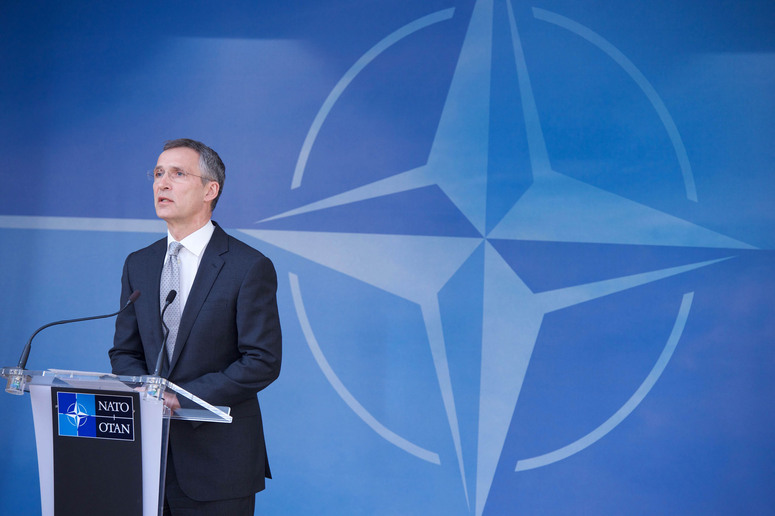
NATO: Maintaining Security and Stability in a Changing Security Landscape
The North Atlantic Treaty Organization (NATO) continues to be an important pillar of security and stability across the Atlantic and beyond. NATO employs a multi-faceted approach to combat security issues affecting its 28 member states, and continues to expand its efforts to maintain stability for these members. Transatlantic security remains significant to the United States, as the insecurity of one state in the Alliance adversely disturbs the security of other members of the Alliance.
NATO Secretary General Jens Stoltenberg recently met with President Obama and senior US defense leaders to discuss the importance of NATO at a time of greater security challenges across Europe and the Middle East. His visit came in anticipation of NATO’s Warsaw Summit in July, a two-day Summit intended to, “Chart the course for the Alliance’s adaptation to the new security environment, so that NATO remains ready to defend all Allies against any threat from any direction.”
At an Atlantic Council event, General Stoltenberg reaffirmed NATO’s unity between its members, discussed NATO’s continued relevancy in the world’s changing security landscape, and defined what NATO is doing to maintain the security of its members. He outlined three key strategies NATO will need to implement in the coming years to combat emerging security threats.
NATO must strengthen its ability to support local forces.
Training and supporting local forces will be an important strategy to combat ISIL expansion in the MENA region. Stoltenberg stressed that capacity building—which includes planning and coordinating support services—will be imperative in states such as Jordan, Tunisia, Moldova, Afghanistan, and Georgia. NATO also plans to expand both their assistance and training programs to local forces across the Middle East, and are prepared to aid Libya as well, welcoming the Government of National Accord under Fayez al-Sarraj’s leadership.
NATO must step up their support for Iraq.
Haider al-Abadi, Iraq’s Prime Minister, has recently requested NATO’s help to address the security and stability issues plaguing Iraq. A stable Iraq is a key component in the battle against ISIL, Stoltenberg said, and NATO must increase its assistance of Iraqi forces. Iraqi soldiers have been running into several obstacles, including improvised-explosive devices (IEDs), which are their military’s biggest killer. NATO will help Iraqi forces deal with IEDs and other pressing issues, and will include additional training of local forces in Iraq.
NATO must take its cooperation with partners and regional organizations to a new level.
NATO will escalate its cooperation with regional partners such as the Gulf Cooperation Council, entities that know their regions best. NATO can share expertise with the GCC to help build and maintain military infrastructure, which can enhance cooperation in counterterrorism operations, maritime security, and cybersecurity.
He also discussed Russia’s aggressive behavior, stating that even though Russia does not pose an imminent threat to NATO allies, it is attempting to reestablish a sphere of influence around Eastern Europe, and are “willing to use military force… to intimidate neighbors, to change borders in Europe, annex Crimea… and so on.” That is why it is important that NATO remain strong and capable. But it should not seek an open confrontation with Russia, Stoltenberg said. Instead, NATO and Russia should strive towards a more cooperative relationship, one that could prove beneficial to both sides.
NATO is a cornerstone of security for the United States, Europe, and beyond. The Alliance has responded to challenges from Afghanistan and Kosovo, and maintained security by monitoring the Mediterranean Sea, supporting the African Union, and conducting counter-piracy missions off the Horn of Africa. It will continue to address these security issues and more, acting as a leader of stability in the trans-Atlantic.
A link to the Atlantic Council event can be found here.





